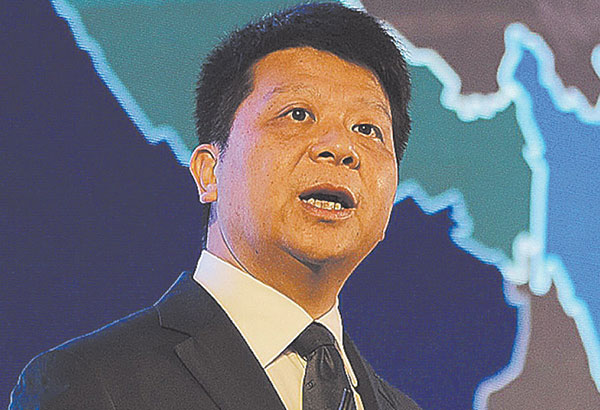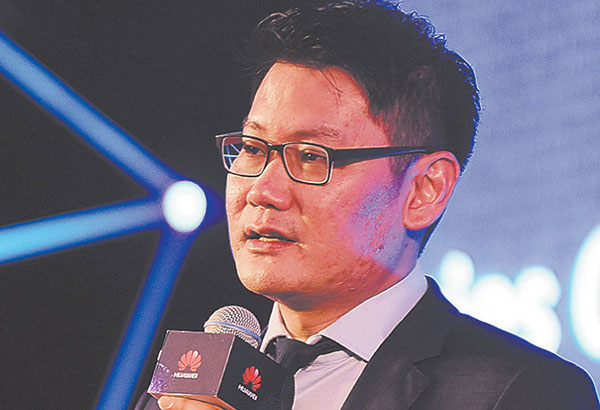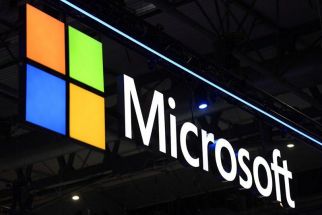OpenLabs, safe cities shine at Huawei Asia-Pacific Innovation Day 2017

Guo Ping, deputy chairman of the board and rotating CEO of Huawei, delivers the keynote speech at Huawei’s Asia-Pacific Innovation Day in Kuala Lumpur.
MANILA, Philippines — Global ICT solutions provider Huawei held its third annual Asia-Pacific Innovation Day in Kuala Lumpur recently, focusing on digital transformation models for emerging markets, small and medium enterprises, and core industries.
“We’ve all heard about Maslow’s Hierarchy of Needs. When a country goes digital, they experience a similar evolution of needs. I would divide this hierarchy into four layers. The first is ICT infrastructure, which is the foundation of a digital economy. The second is security, for both the physical and digital worlds. Security is necessary for further development. The third layer is developing a supportive environment for industries to go digital. Building on a solid foundation of privacy protection, the fourth and highest layer is enabling broader information sharing. More data will help cities and national governments better manage the digitization process, ultimately promoting safer cities and smarter countries,” said Guo Ping, Huawei deputy chairman of the board and rotating CEO, at his keynote speech.
Guo stressed that technological innovation and an open ecosystem are critical to the success of digital initiatives in the APAC region. “We need to collaborate more broadly and share views across the ecosystem, including between industries and universities worldwide. Close collaboration between industry and academia will help ensure a thriving digital economy.”
In a keynote speech, Malaysian Deputy Prime Minister and Minister of Home Affairs, YB Dato’ Seri Dr. Ahmad Zahid bin Hamidi expressed optimism about the future of digital transformation in the Asia-Pacific region. He encouraged all APAC countries to communicate more and work more closely together to drive positive, sustainable economic outcomes.
Openness, innovation, collaboration and shared success were the common themes of the year’s event, which featured several individual presentations and moderated panel discussions.

Lim Chee Siong, chief marketing officer, Southern Pacific Region, Huawei
Tony Q.S. Quek, associate professor from Singapore University of Technology and Design, spoke about Huawei’s Innovation Research Program, which funds joint innovation with universities. Dr. Ong Hang See from Universiti Tenaga Nasional (UNITEN) and YBhg Datuk Shahrol Azral Ibrahim Halmi, CEO of Malaysia Petroleum Resource Corp., presented real-world examples of the electric power industry and the oil and gas industry going digital.
During the event, Huawei also signed memorandums of understanding (MoUs) with the SME Corporation Malaysia, Universiti Malaysia Sabah, Terengganu State Government, and CyberSecurity Malaysia, expanding cooperation across a number of domains, including scientific research, innovation, talent, smart campuses and cyber security.
Since debuting in 2013, Huawei Innovation Day has been held in London, Milan, Munich, Paris, Singapore and Sydney.
Creating Safe Cities
Also at the event, US-based Brookings Institution released Benefits and Best Practices of Safe City Innovation, a report which examines the ways digital technology, mobile networks and integrated solutions help authorities in 17 global cities manage public safety and law enforcement.
“Cities face barriers such as poor funding, infrastructure difficulties, public resistance, a lack of technical expertise, privacy and security concerns – but it is crucial for leaders to overcome these obstacles. In the report, we have identified many opportunities for cities to build their economies and promote social inclusion through public safety innovation. We have included a list of recommendations that will enable cities to reap the benefits of digital technology to improve the living standards of their citizens,” said Darrell West, VP of Brookings Institute and co-author of the report.
Overall, findings from the report indicated that, from an infrastructure perspective, the Asia-Pacific region has enormous potential for smart city and safe city development.
Huawei highlighted its own experience helping the Longgang District in Shenzhen, China build out its safe city infrastructure. Every day, Longgang captures 4,800,000 road checkpoint data, 140,000 plate readings at gas stations, and 14,600,000 face images, activating the district’s safe city solution framework which capitalizes on Big Data management.
According to Huawei’s Global Connectivity Index (GCI) report, a 20-percent increase in ICT investment in a country correlates with one percent more growth in GDP and a two-percent increase in the country’s scoring in innovation and competitiveness.
As a starter in ICT development, the Philippines ranks 38th out of 50, lagging behind other countries in terms of fundamental infrastructure and broadband and data center capacity. On a positive note, the country is in the second phase (developing phase) of the safe city program, according to Amy Lin, SVP at Huawei Technologies.
“Different countries and regions are in different developmental stages… The second stage includes some developing countries in Middle East and Asia Pacific. They have laid some foundation and what the countries need to do is to acquire and install information technologies and ensure that all technologies deployed are in use and all applications are put in place,” she shared, adding that Huawei will actively participate and invest its resources into the safe city project.
In The Swim Of (Internet Of) Things
Huawei also announced the construction of an OpenLab in Malaysia, which will serve as an open, flexible and secure platform for joint innovation with local companies in the country and the region. Similar OpenLabs have been established in Munich, Mexico, Dubai, Singapore and China, supporting extensive cooperation between Huawei and over 400 solution partners globally. This means that Filipino companies interested in partnering with Huawei may visit regional OpenLabs such as the one in Singapore.
“Open Lab is set up with the main purpose of letting partners look into Huawei’s R&D process… and utilize Huawei technology platform as well as our global market platform. IoT is a very complex ecosystem, and for Huawei, we offer three things: first, the chipsets, which can be integrated into any objects; second, the network; and third is the IoT management platform,” said Lim Chee Siong, Huawei chief marketing officer for Southern Pacific Region.
“A chipset can be integrated into cars, locks, watches and almost all objects so that the products become interconnected and smarter,” he said, adding that by partnering with Huawei, products and services are ensured of international standards.
For a case study, Xue Ding, co-founder of ofo, presented the shared bike company’s partnership with Huawei, which helped ofo embed IoT chips in its bicycles and leverage artificial intelligence to offer riders more personalized services.
ofo developed an IoT smart lock based on NB-IoT technology, which lowers power consumption, enables wide coverage, and slashes system resource delays at low cost. NB-IoT lets ofo ensure it has bikes located at key locations when commuter demand is highest. Meanwhile, bikes can be unlocked in less than a second.
Xue indicated that ofo would like to join forces with Huawei and other partners to build out the global IoT ecosystem.
By collaborating with global partners in the fields of chips, Big Data, IoT platforms, and other application ecosystems, Huawei believes that every sector and industry can become smart, rather intelligent, and ready to transform digitally.
- Latest





























